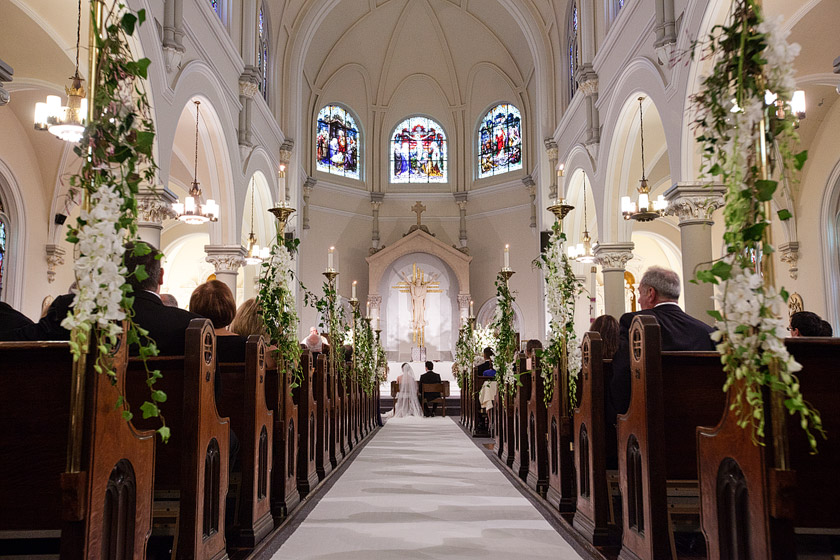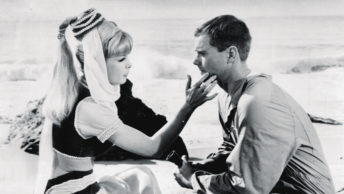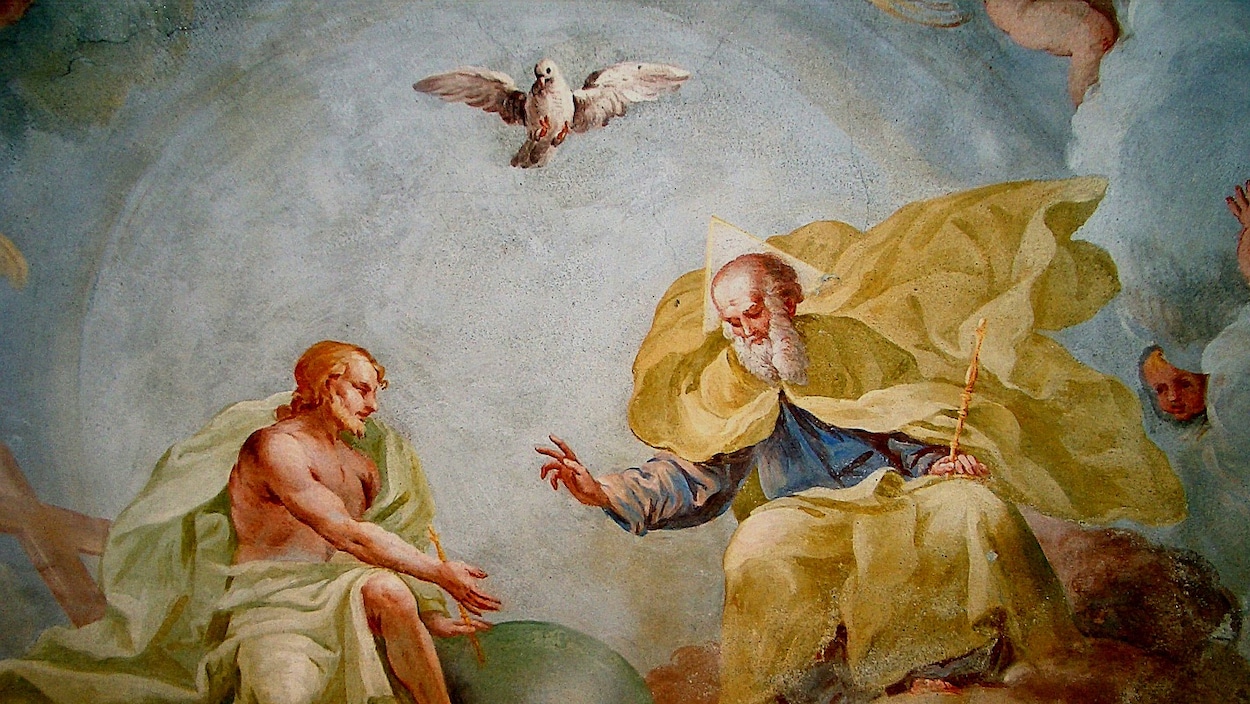Any good comedian will tell you that one of the more humorous subjects is marriage; most people will be amused, and at least half the audience will nod in sympathy or agreement. People like to laugh about the differing perspectives and experiences of men and women. For instance, the pastor of a small fishing village along the Atlantic coast was passed a note during the service which read, “John Jones, having gone to sea, his wife desires prayers from the congregation for his safety.” However, being rather near-sighted, the pastor misplaced the comma, so he read, “John Jones, having gone to see his wife, desires prayers from the congregation for his safety.” In another instance, a married couple who were constantly fighting met for the first time with a marriage counselor. At one point in the session, the wife called her husband “Hon.” The counselor noted with relief, “Well, things can’t be too bad if you’re still calling your husband ‘Hon.’” The wife snorted in disgust, and said, “Heck, I’ve been calling him that for years—Attila the Hun.” On yet another occasion, someone asked a pastor how that afternoon’s wedding had gone, and he said, “Everything was fine, until I asked the bride if she would ‘obey’ her husband. She shouted, ‘What! Do you think I’m crazy?’ The groom was in something of a daze, and at that moment he said, ‘I do,’—and that’s when the fireworks started” (illustrations from homily notebook, “Marriage”).
All kidding aside, I think most of us would agree—based on our own observations, if not on first-hand knowledge—that marriage is often the context, or cause, of some of the most miserable people, and some of the happiest, to be found anywhere on earth. Sometimes husbands and wives can become indifferent toward each other, disgusted with one another, or even devoted to causing their spouses to suffer. Other married couples are truly a joy and inspiration to everyone who knows them, and are just as deeply in love after thirty, forty, or fifty years of marriage as they were when they were engaged or on their honeymoon. Jesus speaks of blessings and woes in regard to our attitude toward life, and this is very appropriate on World Marriage Day, for the same dynamic seems to be at work between husbands and wives. If we live in a selfish manner, thinking only or primarily of ourselves, we’ll end up lonely, empty, and miserable—but if we’re open to God’s grace, especially as it comes to us through other people, our lives will be enriching, fulfilling, and happy. God created us in a spirit of love, and only by living and sharing this experience can we truly find ourselves and achieve our purpose in life.
Some people foolishly believe that when it comes to life and happiness, “anything goes,” that whatever you feel you need to do in order to “fulfill yourself” is okay, and that everyone—God included—should be tolerant and accepting of our choices. The readings for the Sixth Sunday in Ordinary Time tell us that this sort of mixed-up thinking is not only nonsense, but also quite dangerous in a spiritual sense. Through the prophet Jeremiah (17:5-8), the Lord warns us in no uncertain terms that those who trust in human beings—or, in other words, place their trust in this world—are cursed; they have no real foundation for their lives, no source of inner peace, and no reason to hope. Only those who are rooted in God will be able to face the challenges of life successfully. St. Paul (1 Corinthians 15:12, 16-20) takes this a step further, speaking of our eternal destiny; only those who place their hope in Christ will be able to live and rejoice forever. In the Gospel of Luke (6:17, 20-26), Jesus situates this truth in the reality of our personal decision for or against Him. Just as husbands and wives can choose to be miserable by being self-centered and resentful, or choose to be happy by being self-giving and appreciative, so we can and do choose for ourselves either eternal damnation or everlasting joy. Everything depends on our willingness to receive, respond to, and share God’s love.
I was once asking a student to name the seven sacraments, and he was thinking aloud, “Well, there’s Baptism, and Confirmation, and Eucharist, and Reconciliation . . . and what’s the sacrament for people who are sick and suffering? Oh, yeah, Matrimony.” Now, that may not be exactly true, but in a sense it is fitting to link marriage and illness together today, for in addition to being World Marriage Day, this weekend is also the closest one to the Feast of Our Lady of Lourdes on February 11, which is the World Day of Prayer for the Sick.
Marriage and illness can both involve suffering, limitations on one’s freedom, and a sense of regret or a desire for change. Marriage and illness can also both be a source of grace and blessing, personal growth, and even joy—joy in the sense of being able to choose to unite one’s sufferings to Christ’s suffering on the Cross, thereby giving them great redemptive value and preparing for oneself an even higher place in Heaven. Marriage and illness are each observed in the Church by special sacraments; Matrimony and Anointing are both reminders not only of God’s love, but also of His ardent desire to be involved in every aspect of our lives. Holiness doesn’t depend on living apart from everyone else, making heroic sacrifices, or performing great deeds; it simply requires our free decision, renewed each day, to place every aspect of our lives in God’s hands, to seek His guidance in everything we do, and to ask His help in learning to love Him, and other people, even more than we love ourselves.
I am extremely grateful for the example of love and self-giving I’ve witnessed in so many married couples I’ve known throughout my life, and for the example of holy resignation and unshakeable trust I’ve seen in the lives of so many persons who’ve had to bear heavy crosses of physical or psychological illnesses and disabilities. God has been at work in and through each one of them, and He wants this also to be true of us. We must decide, however, whether Jesus was speaking to us when He pronounced blessings, or woes. The path leading to eternal happiness is a difficult one, but it’s clearly marked—and our destiny depends on whether or not we choose to follow it.








